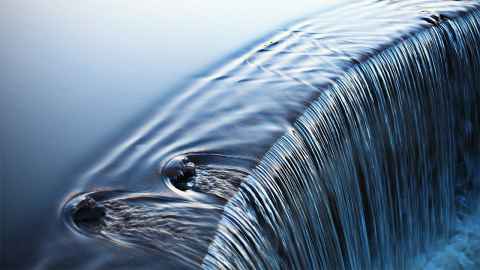Conserving water helps buys insurance for climate surprises
29 October 2020
While climate change is contributing to Auckland's water shortage, it's not the only reason for it.

From November 2019 to May 2020 Auckland received 40 percent less rainfall than normal. The long-range forecast predicts well below average rainfall for spring and bans on outdoor use of water may remain until mid-2021.
Associate Professor Anthony Fowler, a hydro-climatologist from the School of Environment, says there are a number of factors that have led to Auckland’s water crisis. Climate change is a contributor, but it’s complex.
“I get a little annoyed by people talking about 200-year droughts. Yes, there was an intense drought this summer, but it was about three months. The water supply system is supposed to cope with two years of dryness, not fall over when you have three months of drought.
“We've had big droughts in the past that we got through because we got ahead of ourselves
in terms of water supply.”
He says in the 1980s there was a major study done that presented options on how best to maintain Auckland’s water supply.
“We were going to build another reservoir in the Hunua Ranges, in the lower Mangatāwhiri, but that’s never been built. There was also a scheme planned for the west of Auckland, where riverflows in winter would be pumped into storage for use over summer. That scheme was quite a revolutionary idea for Auckland, but then the 1994 drought came along.”
You have to build capacity. This city shouldn’t have a water supply problem related to climate change.
He says that’s when a lower-ranked option from the study – drawing on the Waikato River – was elevated to the top of the list.
“When you have a water crisis like in 1994, you look for emergency solutions. The Waikato river was the emergency solution.
“Then the drought broke and we had an absolute deluge, yet politicians still wanted to build the pipeline to the Waikato river. It was a fait accompli even though it wasn’t on top of the recommended list previously.”
In 2002, the pipeline to Waikato was put in.
“That’s where Council wants to go again. Summer-time pumping of the Waikato is a bad idea for Auckland as well as Waikato ... and will cause political angst in the future.”
Three years ago Anthony warned Auckland could expect a decade of dry summers. He says the care of water requires careful assessment of historical records and the creation of contingency plans.
“Since about 1976 we have had a decrease in rainfall in Auckland, by about 5 percent. You can see it in the data, but there is still plenty of rainfall in winter.
“Auckland is a growing city. We’re always needing more supplies. You have to build capacity. This city shouldn’t have a water supply problem related to climate change.”
He says if supply keeps well ahead of the demand curve, and people keep conserving water, it partly buys insurance for any future climate surprises.
This side-bar article appeared in Ingenio 2020 as a companion piece to the cover story on climate change.